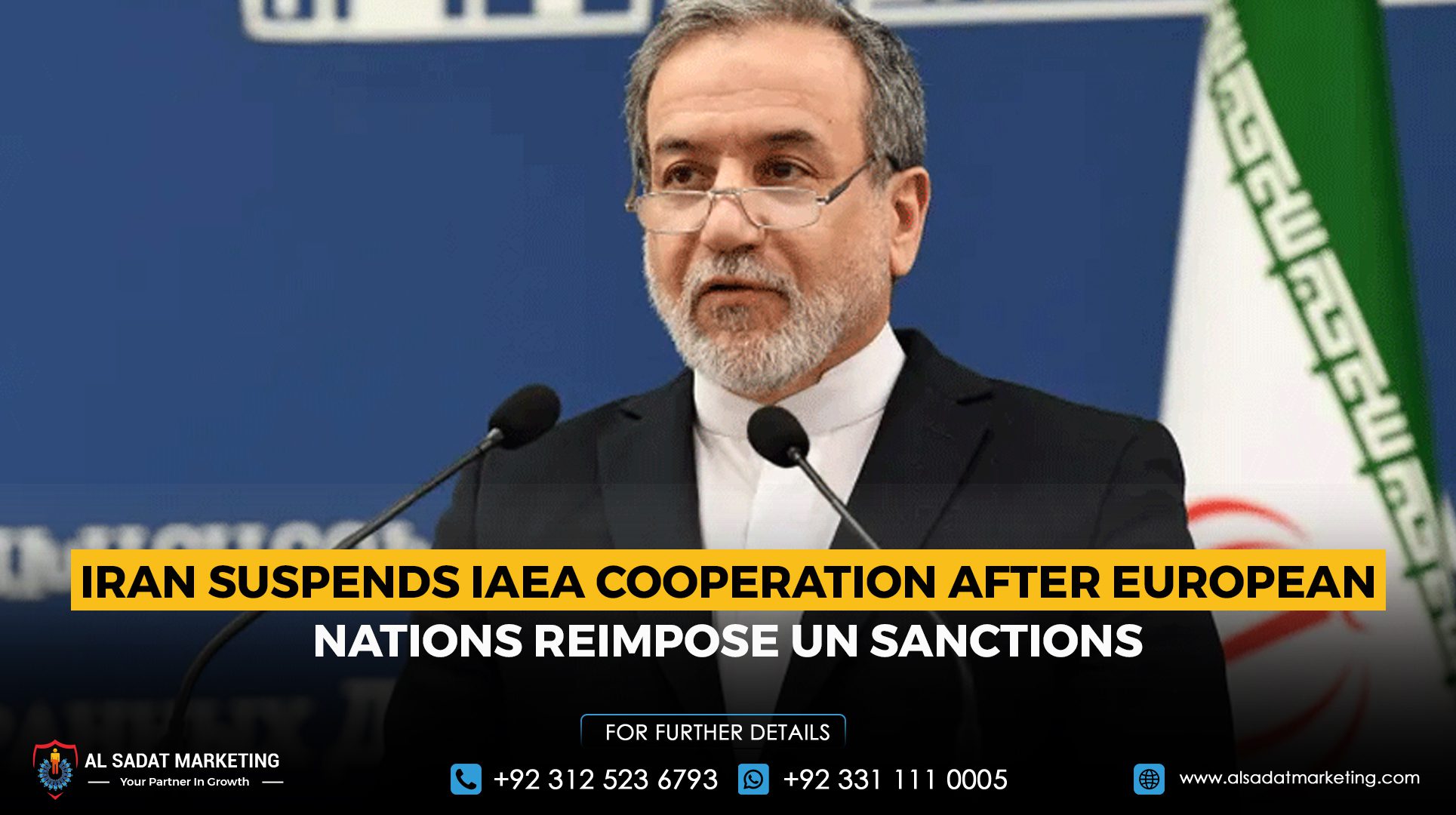Iran has announced that it will no longer cooperate with the United Nations’ International Atomic Energy Agency (IAEA) after European countries reinstated UN sanctions against Tehran. Foreign Minister Abbas Araghchi said on Sunday that the Cairo agreement, which allowed international monitoring of Iran’s nuclear sites, is now “no longer relevant” following Europe’s move. The decision came after Britain, France, and Germany triggered the “snapback” mechanism under the 2015 nuclear deal (JCPOA), restoring sanctions that had previously been lifted. The three countries accused Iran of violating the deal’s terms, a claim Tehran strongly denies. Araghchi said Europe had “lost its leverage” by taking this step, calling it a “strategic mistake.”
Iran has also accused the IAEA of double standards for ignoring repeated Israeli attacks on its nuclear and military sites. Western nations, led by the United States and supported by Israel, claim that Iran’s nuclear program is aimed at developing weapons, while Tehran insists it is for peaceful energy purposes under the Nuclear Non-Proliferation Treaty (NPT). Some Iranian lawmakers have called for the country to withdraw from the NPT in protest, but President Masoud Pezeshkian has said Iran will remain a member for now.
Araghchi hinted that Iran’s final decision on future cooperation with the IAEA would be announced soon but noted that there is still room for diplomacy. Efforts to revive broader nuclear talks between Tehran and Washington, which resumed earlier this year, collapsed in June after Israeli strikes on Iranian facilities. Iran has since accused the United States of sabotaging diplomacy and has demanded security guarantees and recognition of its right to pursue peaceful nuclear development before returning to negotiations.










